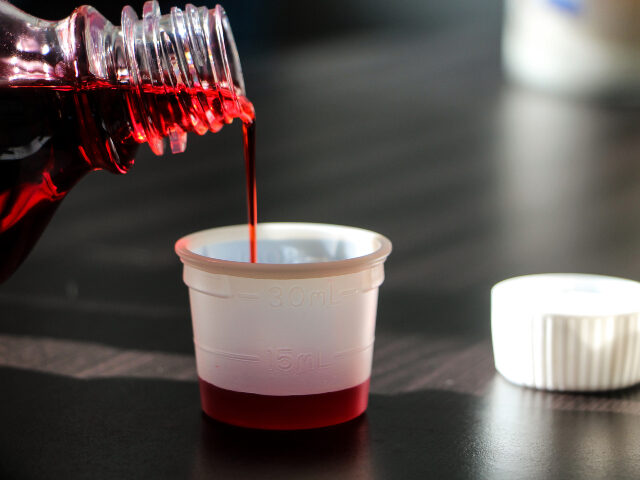The World Health Organization (W.H.O.) on Monday called for “immediate and coordinated action” after more than 300 children in seven countries were killed by contaminated cough syrup last year.
“These contaminants are toxic chemicals used as industrial solvents and antifreeze agents that can be fatal even taken in small amounts, and should never be found in medicines,” W.H.O. declared.
The primary contaminants cited by W.H.O. were diethylene glycol (DEG) and ethylene glycol (EG). These substances are apparently added to the cough syrups in question as a sweetener, but as W.H.O. pointed out, they are meant to be ingredients in products like antifreeze and polyester. The human body breaks ethylene glycol down into toxic components that can attack the heart, kidneys, and central nervous system.
W.H.O. said most of the victims of the contaminated syrup were children under the age of five. The largest clusters of victims were reported in Gambia, Indonesia, and Uzbekistan. W.H.O. previously issued medical alerts for each of these countries.
The other four countries where suspect child medicines may have been sold are Cambodia, the Philippines, East Timor, and Senegal.
In December, the Health Ministry of Uzbekistan blamed a particular brand of syrup called Doc-1 Max for killing at least 18 children. The syrup is produced by an Indian company called Marion Biotech, which halted production of the Doc-1 Max line pending an inquiry. Laboratory tests performed in Uzbekistan found potentially harmful amounts of ethylene glycol in the medicine.
In early January, W.H.O. advised consumers worldwide to stop using children’s cough syrup from Marion Biotech and another Indian company, Maiden Pharmaceuticals, whose products were implicated in the deaths of Gambian children.
The Indian government suspended Marion Biotech’s production license around the time this W.H.O. advisory was issued. Maiden’s plant was also shut down, but the company is hoping to restart production after a government inspection.
Another W.H.O. alert warned consumers to stop using cough syrup from four Indonesian companies called PT Yarindo Farmatama, PT Universal Pharmaceutical, PT Konimex, and PT AFI Farma.
W.H.O. is reportedly investigating the possibility that the two Indian firms and four Indonesian firms obtained ingredients for their cough syrups from the same suppliers. PT Universal Pharmaceutical, one of the few companies willing to comment on the allegations, pointed to these suppliers as the likely source of the dangerous ingredients.
“Chase the suppliers, they’re the real criminals. They’re the ones that forge raw ingredients by falsifying raw ingredient documents all the way to pharmaceutical companies,” said PT Universal Pharmaceutical lawyer Hermansyah Hutagalung, without naming the “criminals” in question.
“Since these are not isolated incidents, W.H.O. calls on various key stakeholders engaged in the medical supply chain to take immediate and coordinated action,” the Monday bulletin stated.
W.H.O. Acting Director for Antimicrobial Resistance Hanan Balkhy warned at a news conference on Tuesday that “there might be children out there exposed to these medications that we’re not even aware of.”

COMMENTS
Please let us know if you're having issues with commenting.